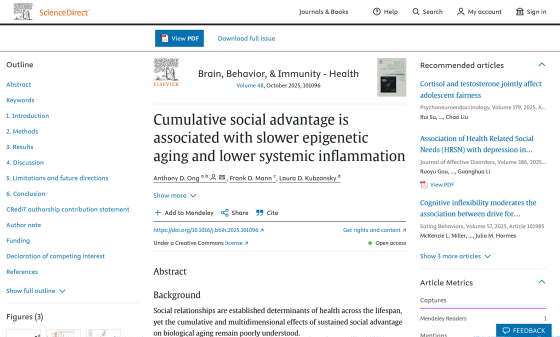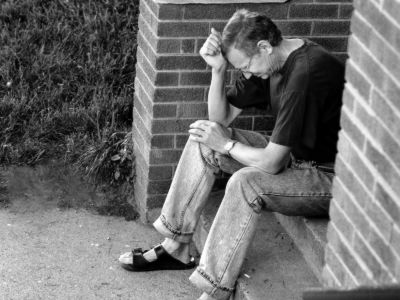Staying socially connected may be key to slowing biological aging

While we all age, slowing the aging process could potentially shorten the time we experience age-related diseases and help us live longer. A new study has found that people with strong social connections experience slower biological aging.
Cumulative social advantage is associated with slower epigenetic aging and lower systemic inflammation - ScienceDirect

Can friendship keep you young? Scientists say your social life might slow aging
https://theconversation.com/can-friendship-keep-you-young-scientists-say-your-social-life-might-slow-aging-266313
It's long been known that people with strong social connections live longer and have better health, but less is known about how social connections affect the body at a biological level.
A research team from Cornell University, the State University of New York at Stony Brook, and the Harvard School of Public Health in the United States investigated the relationship between the strength and consistency of social connections and aging in more than 2,000 adults.
The research team focused on family relationships, as well as involvement in local and religious organizations, emotional support and activity in the community, and devised an index called 'cumulative social advantage (CSA).'
CSA essentially indicates the degree to which a person is socially connected and supported, and by focusing on CSA as a research subject, it is possible to capture the relationship between broader social connections and aging than previous studies that focused on single factors such as 'marriage' or 'friendship.'

After calculating the subjects' CSA, the research team compared it with various aging indicators, including 'biological age based on DNA changes,' 'levels of inflammation throughout the body,' and 'activity of stress-related hormones such as cortisol and adrenaline.'
The results showed that people with stronger social connections tended to experience slower biological aging and less inflammation, but no significant association was found between social connections and short-term stress responses.
'This study adds to the growing body of evidence that social connections are closely linked to aging,' said
Goodwin points out that humans have evolved as social beings for hundreds of thousands of years, and belonging to groups is important for safety, food security, and health, so it's not surprising that our bodies thrive when we're socially connected.

The study also found that social advantage is associated with broader inequalities, such as those with higher education levels, higher incomes, or belonging to certain ethnic groups, who tend to experience slower biological aging and less inflammation, suggesting that both social and economic environments influence aging.
Goodwin argues that there are two ways to address this issue. The first is to promote social policies that reduce poverty and improve education and opportunity. These factors clearly affect health and aging, so it is important to address them at the national and local levels.
The second is that people try to maintain their social connections. Because people have some control over their own behavior, Goodwin argued that by striving to stay connected, supportive, and involved with others, they may be able to slow their biological aging.
Related Posts:
in Free Member, Science, Posted by log1h_ik







